How ‘A Ghost Story’ Beautifully Captures the Pain of Moving On & Grieving a Loved One’s Death
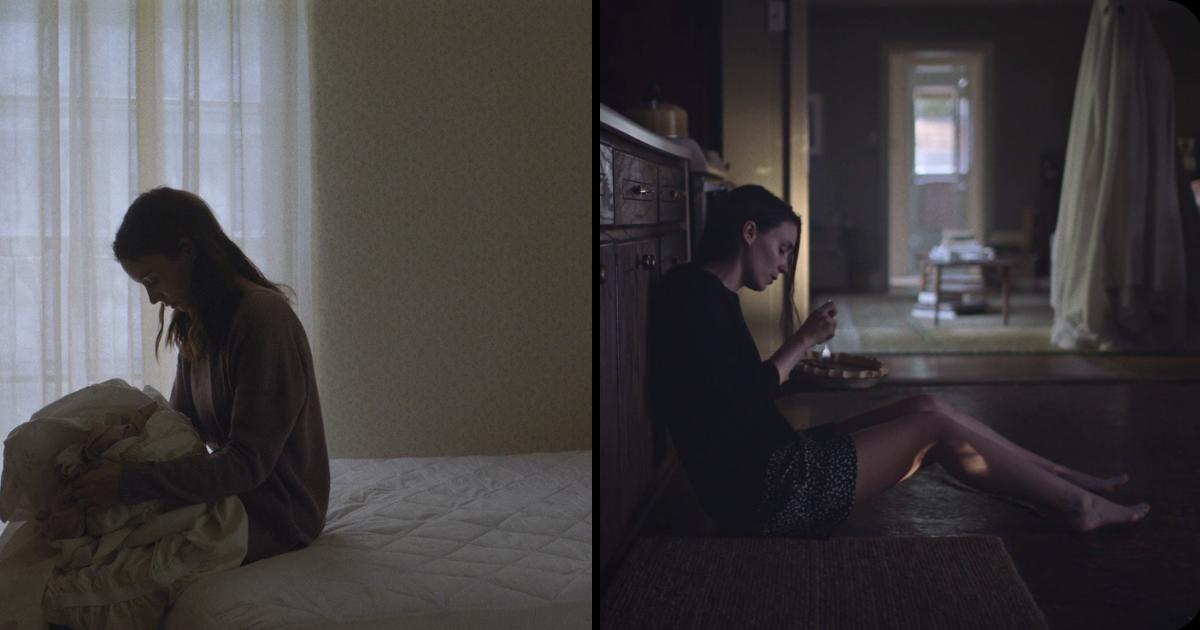 Thirsty for JUICE content? Quench your cravings on our Instagram, TikTok and WhatsApp
Thirsty for JUICE content? Quench your cravings on our Instagram, TikTok and WhatsApp

Death is inevitable and most of us tend to tread carefully when discussing the taboo subject because we don’t know what happens after a person takes their last breath.
However, what is certain about death is the grieving process that follows those who are left behind and are forced to continue living without the presence of someone they once deeply cared about.
If you’ve ever felt empty and depressed after the death of a loved one, you’ll understand how difficult it is to move on and accept your new reality—a world that no longer allows you to communicate with someone who was once a big part of your life.
The unanswered questions we humans have about the afterlife are the central theme of David Lowery’s 2017 film, A Ghost Story, a must-see cinematic masterpiece for those longing for closure.
Disclaimer: The plot of the film is heavily discussed in this article in order to showcase its psychological impact on the audience. If you don’t want spoilers, come back to this story after watching the movie.
While the title may sound corny, it is extremely accurate in describing what the film is about — the ghost of a man who is forced to see how his wife continues her life without him
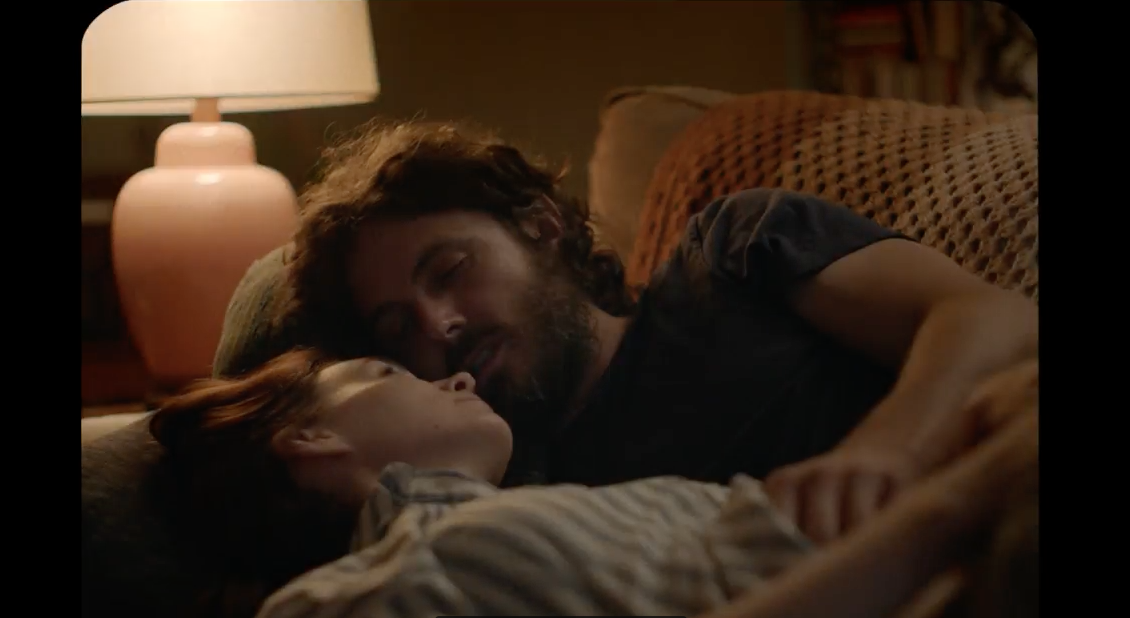
We see a couple moving out of their home in the first act of the film, and the wife, M, tells her husband, C, that she always leaves a note inside the walls of the houses she used to live in.
The note serves as a sentimental piece for the woman, and it’s also a big symbol in the film. If she ever returns to her old home, she will look for it to recall her old life.
Her husband, on the other hand, isn’t thrilled about them leaving the house. He appears uninterested in assisting his spouse in moving their furniture outside and instead spends his time making music in their living room.
In the following scene, however, C is involved in a car accident right in front of their house and dies while his wife watches his bloodied body nearby.
What happens if we die without getting the necessary closure with our significant other?
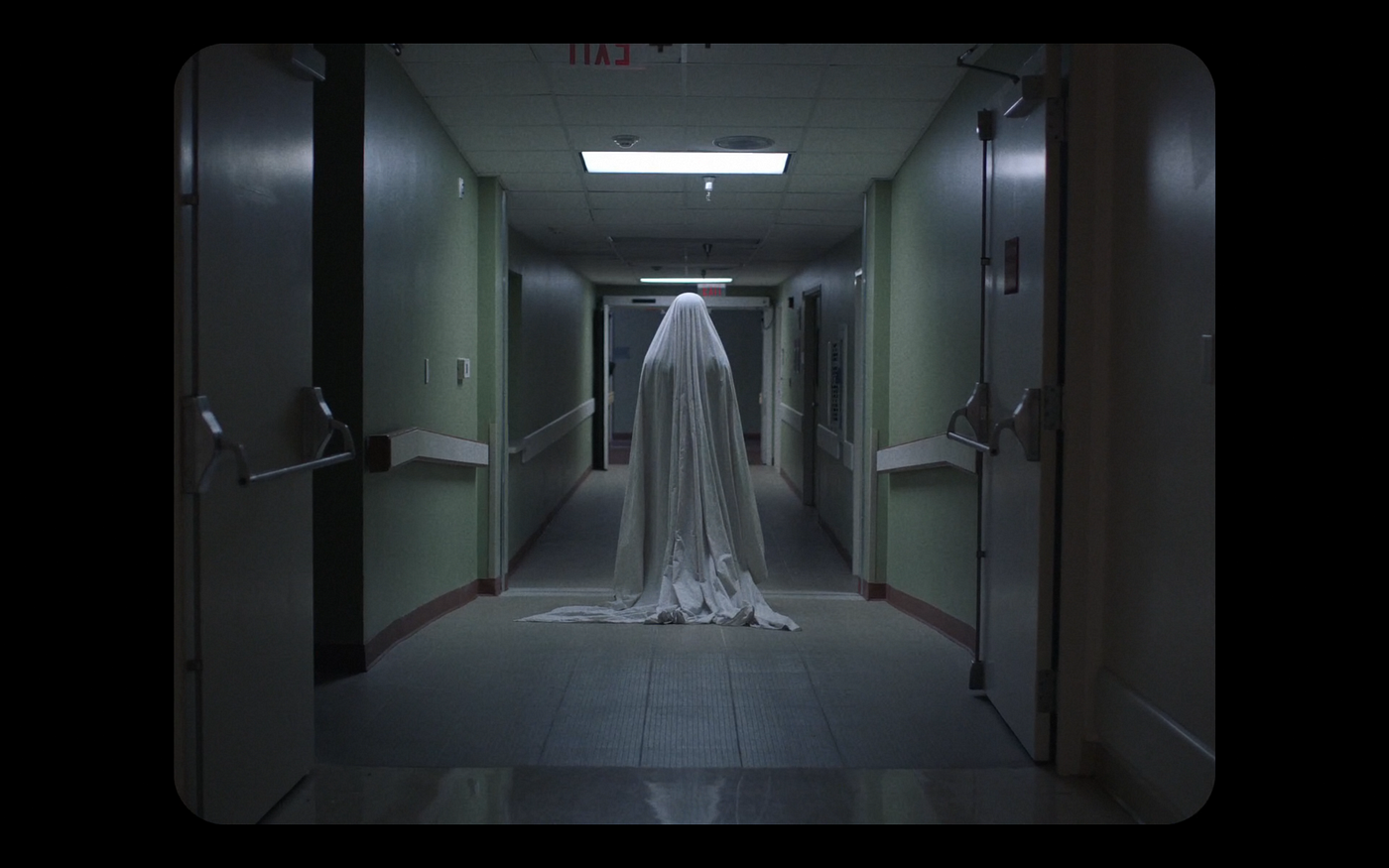
After he dies, we see C waking up inside the mortuary and he takes a stroll to try and comprehend his new life as a ghost who can’t be seen by a human’s naked eye.
The ghost then notices a big portal suddenly opening in the hospital’s wall, which could be interpreted as the passageway to the afterlife, but he does not enter it and continues to walk away.
The audience is then immediately struck by the film’s depressing tone as we see C travelling back to his home, where the ghost sees his distraught wife for the first time, failing to cope with his death.
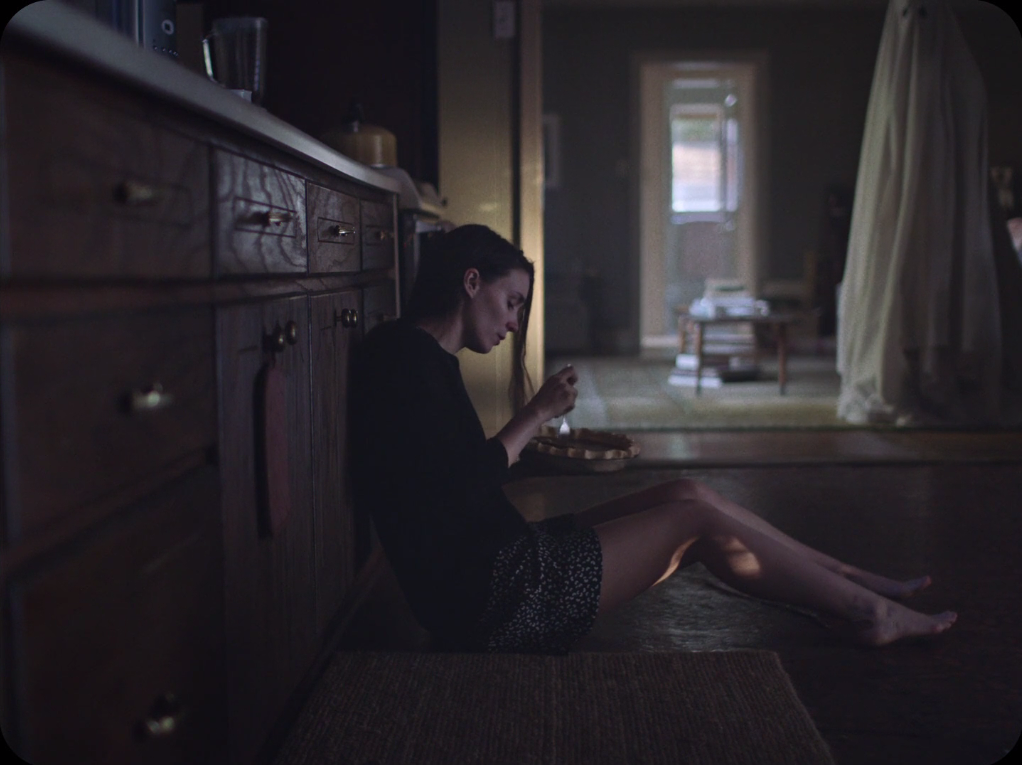
In one scene, M receives a pie from their landlord and eats it depressingly on the floor of their kitchen after returning home. She forcefully shoves spoon after spoon of the warm dessert down her throat, causing her to vomit it up.
She then goes to cry and sleep on C’s side of the bed for the entire day, not waking up to shower or see the outside world. M, however, is unaware that her late husband has been depressingly watching her lose herself, unable to console his wife who is dealing with the most painful feeling in the world.
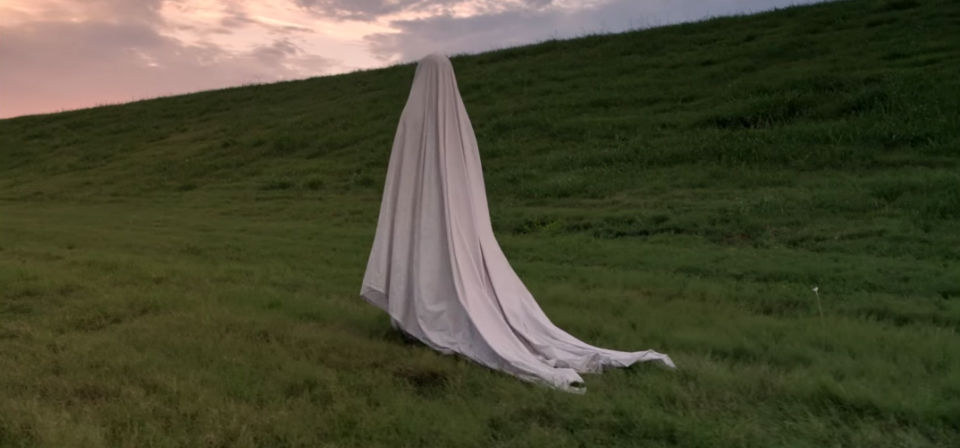
C’s decision to return to his old home is a bone-chilling scene that offers an alternative thought to what we usually think about death. It makes us think about how, even after we have died, we can still be haunted by the agony of being forcibly separated from someone we love.
If we’re given the option to leave our lives behind and enter the afterlife, would we also ignore that choice just so we can be close to someone we love while seeing them suffer?
Is it worth it to watch someone we love lose themselves while we can’t help them at all?
These are just some of the questions audiences will think of while watching the A24 art flick, which might leave them with an existential crisis.
The slow-burner film that perfectly encapsulates the unfathomable pain of bereavement
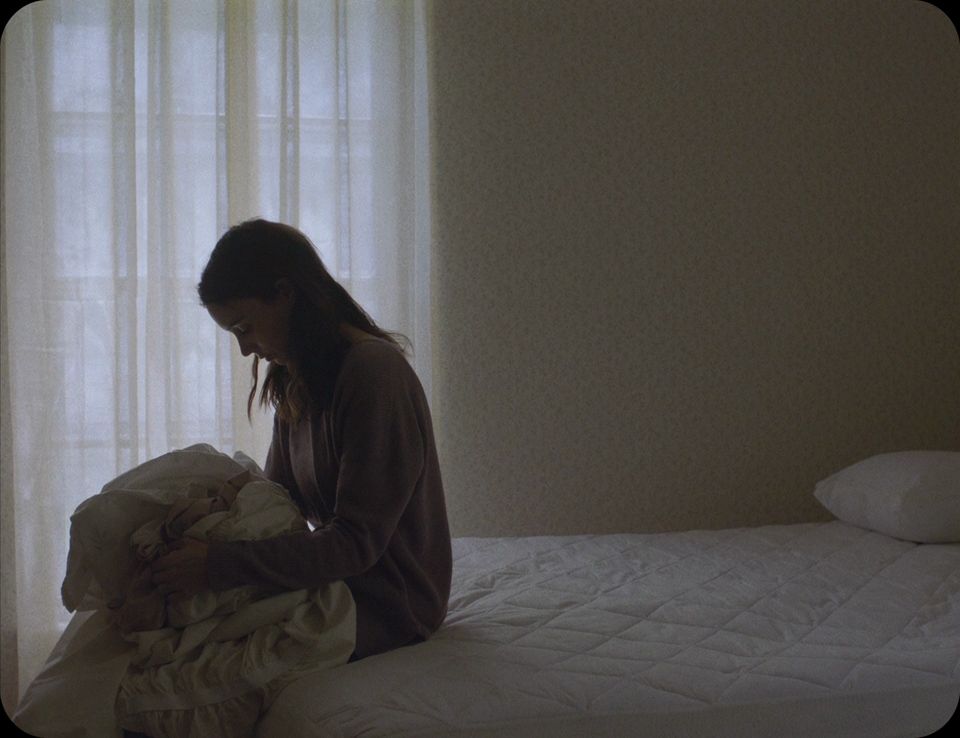
A Ghost Story is also beautiful in that it tastefully depicts the perspectives of the ones who have died, as well as those who must cope with the death of someone they love.
After spending night after night sleeping on her late husband’s side of the bed, we continue to see how M struggles to cope with the death of C.
She eventually washes their bedsheet, but not before holding it and sitting on their bed for hours, debating whether it would cause her to lose his scent forever.
In another scene, the woman lies down on their home’s wooden floor, quietly listening to the final song her husband recorded before his death, a mournful tune called ‘I Get Overwhelmed‘.
There was a scene before that showed her listening to the same track while her husband was still alive, but the emotions on her face in both settings are completely different — she appears frustrated that her husband isn’t willing to move out when he’s still alive, but depressed now that he’s gone.
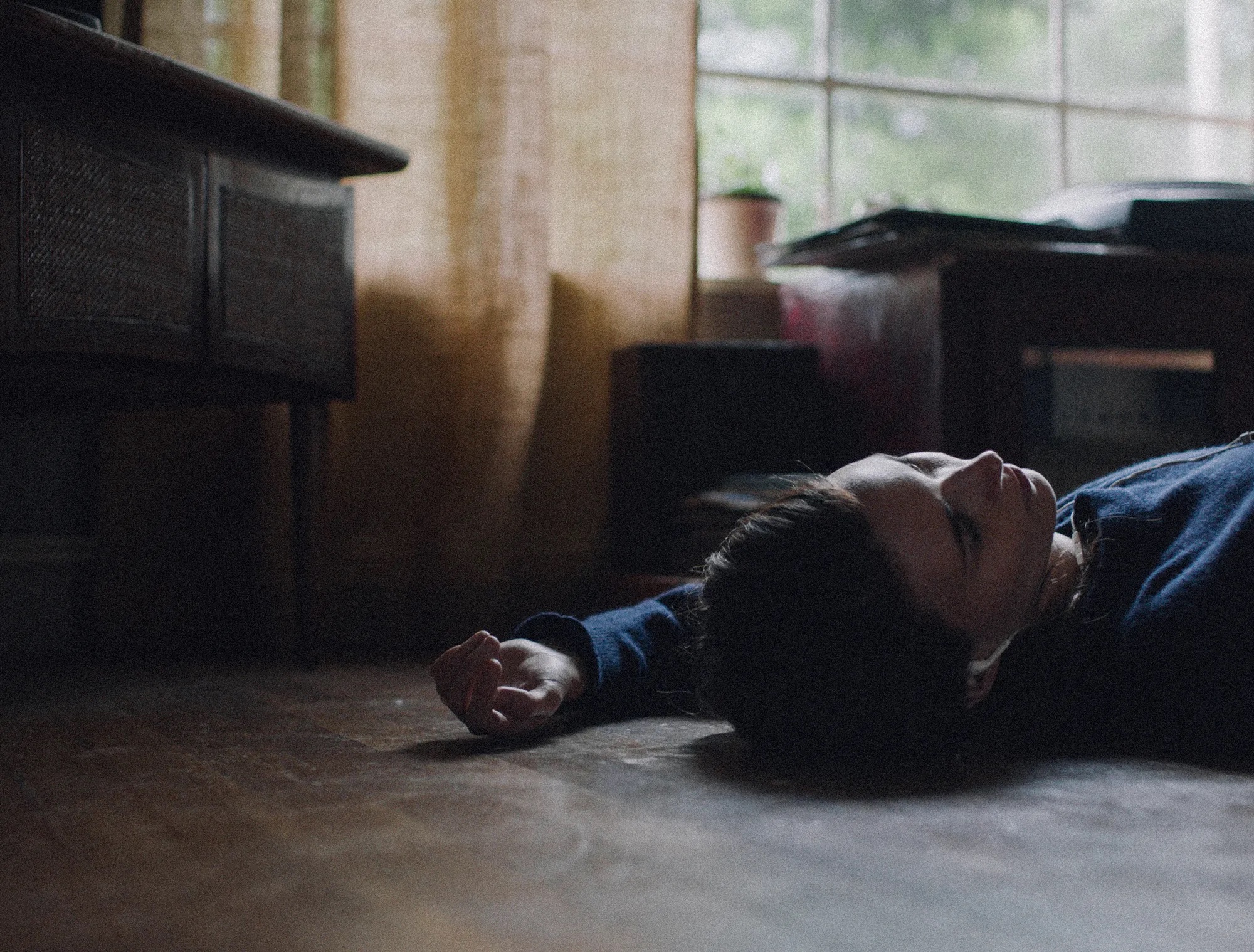
From the emotions displayed on M’s face to the silent thoughts she chooses to keep to herself, these scenes will surely feel familiar if you’ve experienced grief and longing for a loved one who has passed away.
The woman is strong in that she only tears once throughout the film, but the lack of dialogue or monologue in her scenes shows a level of depression that is unmatched by anything else.
We don’t need her to speak for us to feel empathy for her; we all know how difficult it is to deal with loss without having anyone else to depend on.
The pain of moving on
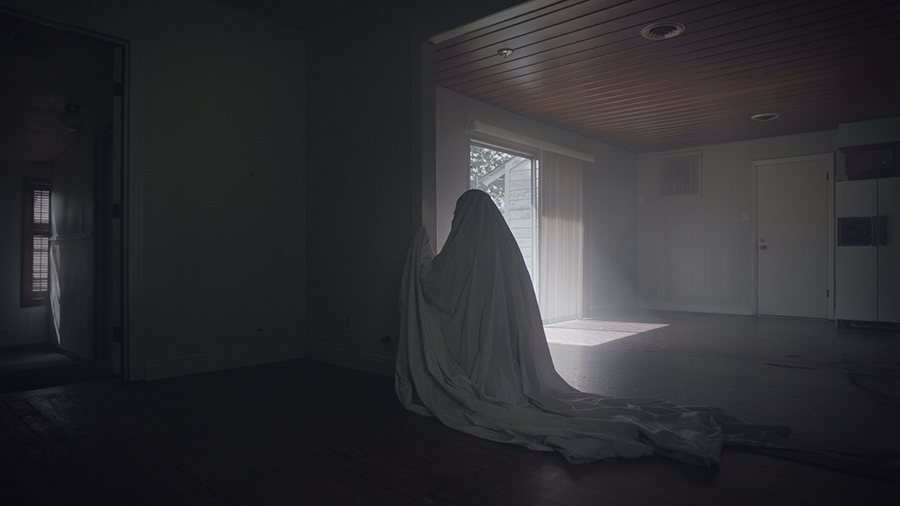
After years of living on her own inside the home she’s built with her late husband, we finally see M moving out of their house to start a new life.
The woman leaves a note inside the house’s wall before leaving, which C’s ghost desperately wants to read, but struggles to get.
Soon after, a Latin family of three moves into the house, but C haunts them by throwing objects and showing his ghostself to the family’s youngest son, prompting the family to leave.
The house is then occupied by young adults who throw parties and have deep discussions about what happens after death, but they also eventually move out.
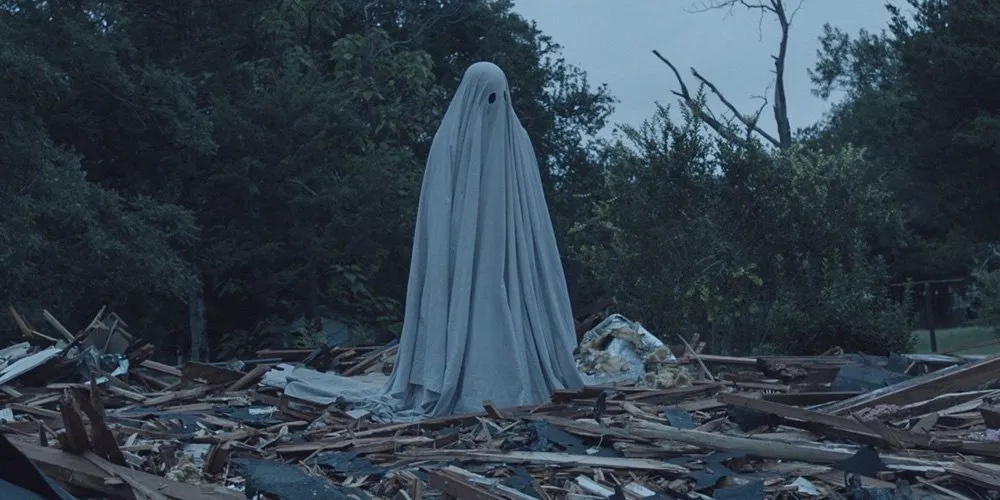
C is the only permanent tenant who has been on the lot. He’s lived there for so long that he has seen his house get demolished and turned into an office space. However, the devoted ghost has struggled for decades to retrieve the note his wife had left behind.
Finally, by the end of the film, he successfully obtains the note, and while the message contained within it is never revealed to the audience, the ghost vanishes and enters the afterlife after reading it, symbolising that his life is now complete.
The man’s determination to find out what his lover has to say after he dies demonstrates that some of us, no matter how long we try, will always find it difficult to move on.
But the ghost’s effort, as well as his wife’s ability to start a new life without him, teach us a bittersweet lesson. We have to accept that no matter how much time we have spent with someone we love, we must eventually let them go.
Death is meant to be bleak, and it’s not supposed to be easy for anyone
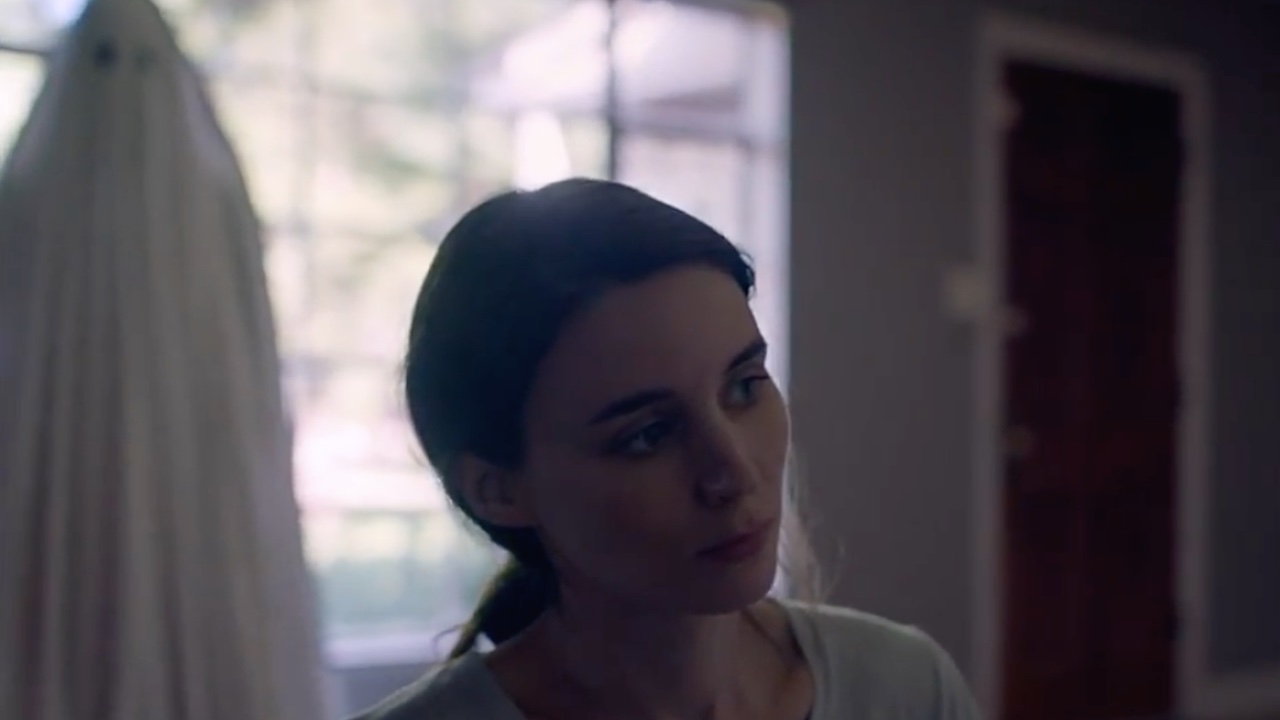
The film manages to broach the sensitive subject of what happens after death while still connecting it to vulnerable human emotions.
There isn’t much dialogue in the film; instead, the director conveys the majority of its message through visual elements, which are enhanced by his cinematic vision.
In fact, there is so little dialogue in the film that not a single lead character is given a name. However, thanks to the incredible production, audiences will remain glued to the storyline and become deeply invested in the film.
All of this contributes to just how brilliant A Ghost Story is. It’s a film that gives the audience the freedom to interpret the plot however they see fit, but they will undoubtedly leave it feeling melancholic.
But that is precisely what death is. While we don’t know what happens after we die, we are all aware that it is a heavy subject that elicits a wide range of vulnerable emotions.
Watch A Ghost Story’s trailer here:
Asking for help is not a sign of weakness.
If you or anyone you know is lonely, distressed, or having negative thoughts, please call these Malaysian hotlines:
1. BEFRIENDERS KL
24-hour
Contact: +603-76272929
Email: [email protected]
Website | Facebook | Twitter
2. TALIAN KASIH
24-hour
Contact: 15999
WhatsApp: +6019-2615999
Email: [email protected]
Website | Facebook
3. BUDDY BEAR CHILDLINE
Daily (12pm – 12am)
Contact: 1800-18-2327
Email: [email protected]
Facebook | Instagram
For a more thorough directory of resources, head over to the websites of Malaysian Mental Health Association or MINDAKAMI.


 Get Audio+
Get Audio+ Hot FM
Hot FM Kool 101
Kool 101 Eight FM
Eight FM Fly FM
Fly FM Molek FM
Molek FM



